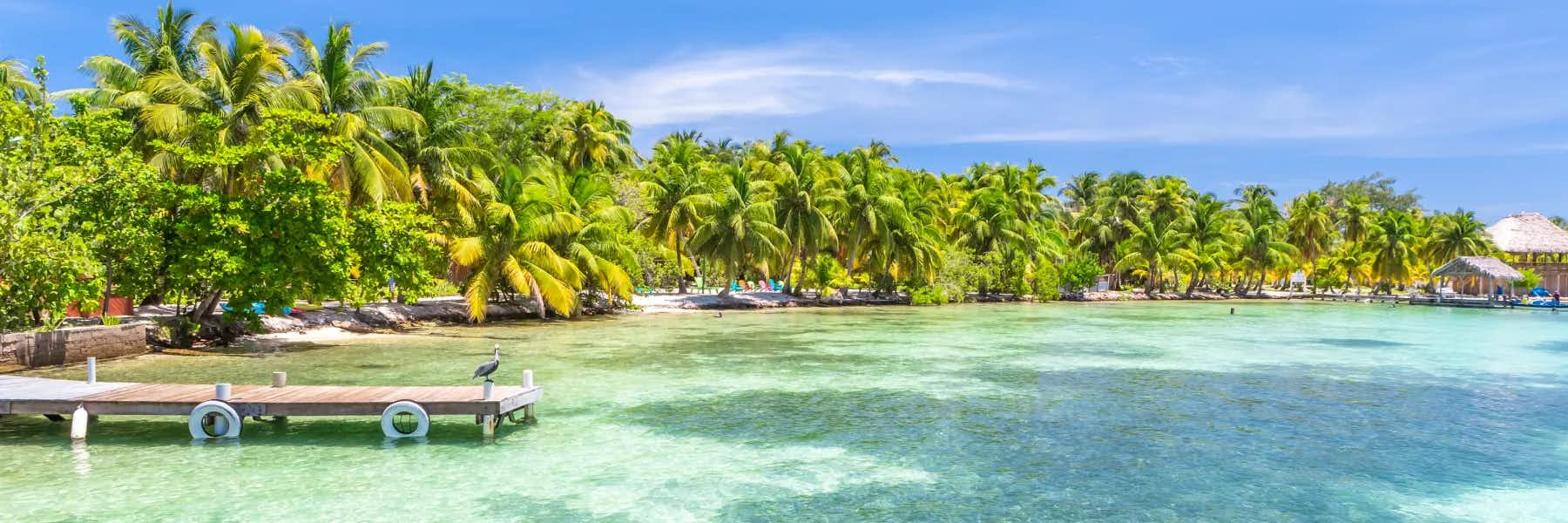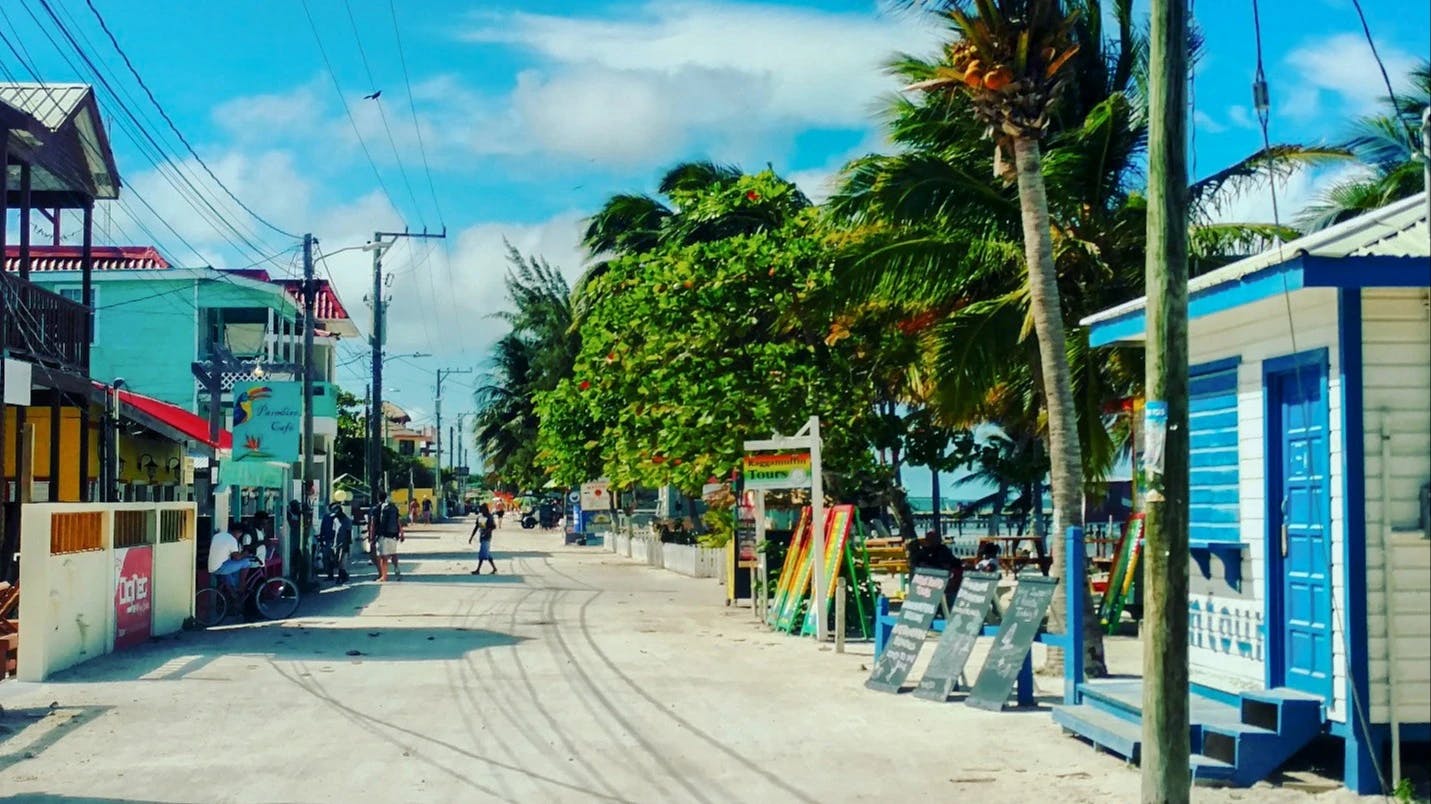By Shane Kenny
Spend a few days in Belize and you’ll quickly see why it’s becoming such a hot destination for many expats. Maybe it’s the friendly locals, the made-from-scratch local foods, the Caribbean vibe, or that English is the official language. Whatever the reason, large numbers of expats from the U.S., Canada, and Europe are choosing to call Belize “home.”
For many, the climate is one of the primary lures. Belize’s diverse ecosystem means you can experience the beach, savannah, rainforest, and mountains, all within the 60 miles between the Caribbean Sea to the east, and the Guatemalan border to the west. The larger expat communities have formed along the coasts where daytime temperatures in the 80s and 90s and nighttime temperatures in the 70s and 80s are typical year-round.
The people of Belize are another draw for expats. They’re welcoming and friendly, eager to share their customs, traditions, and food with new people. With roots in Mayan, Kriol, East Indian, Garifuna, and Mestizo cultures, each village seems to have its own personality. They’re proud of their heritage, and it shows through lively, colorful festivals and celebrations both locally and nationally.
The climate and people make Belize an excellent expat destination, but a few other factors make the transition to day-to-day living easier.
English is the official language of Belize. All business and government functions are conducted in English, easing the transition into living, and doing business in Belize. While seemingly simple, the ability to conduct business, whether at the grocery store or the local immigration office, in English makes the transition to life in Belize easier. Although English is the official language, Spanish is also heavily used, especially in smaller villages, and Kriol is the non-official language of Belize.
The Belize Dollar is the official currency of Belize, and it exchanges at two Belize Dollars for one U.S. Dollar. Thanks to this simple, consistent exchange rate, Belize Dollars and U.S. Dollars are both widely accepted almost everywhere as long as they are not torn, written on, or well-worn. In fact, you can use both currencies in a single transaction. It takes a little getting used to, but using U.S. currency without watching an ever-changing exchange rate quickly becomes one of the simpler joys of life.
Visa and residency in Belize are pretty straightforward. The simplest visa is the 30-day tourist visa, which can be renewed indefinitely at any local immigration office. Most immigration offices will also allow for the purchase of up to a three-month extension on a single visit, and the cost is $100 per month.
Once you’ve lived in Belize for 50 out of 52 weeks, permanent residency becomes an option. The process is paperwork intensive and can take some time to complete (likely over a year). Once approved, the cost is a one-time fee of $2,000. In addition to no longer needing to visit the local immigration office to renew a tourist visa, permanent residency allows one to work in Belize. It makes working with banks and other government agencies much simpler.
Those who are 45 or older and can show $2,000 per month in retirement income may qualify for the Qualified Retirement Program managed by the Belize Tourism Board. This program grants a one-year permanent residency at the cost of $150 to apply, $1,000 when approved, and $25 each year for renewal.
History and Culture
Culturally, what is now known as Belize sprang from the Mayan Empire. By the 14th century AD the Mayan Empire was in decline, and by the time the Spanish arrived in Belize in the 16th century, the Mayan presence had virtually disappeared.
The Spanish could never fully control what is now modern-day Belize, leading to a period during the 17th century when pirates used the territory as a sanctuary. In 1748 Britain wrestled control of Belize from Spain in the Battle of St George’s Caye (still celebrated each year on September 10) and formed British Honduras under their rule.
In 1964 British Honduras achieved self-governance and, on September 21, 1981, became an independent country named Belize while remaining a member of the British Commonwealth. The country is governed by a parliamentary-style government headed by a prime minister and consists of two main parties, the People’s United Party (PUP) and United Democratic Party (UDP). Elections are held every four years, and the winning party’s leader becomes the prime minister the next day.
When the governing party changes at an election, the rapid turnover of power leads to several months of upheaval within the government. Ministers are rapidly replaced, and they appoint members of their party to the prime positions within their ministry. They then establish their government’s agenda and spend time catching up to where the previous government left off. In most cases, they spend time unraveling the previous government’s efforts.
The technical head of the Belize government is the Governor General. The Governor General is recommended by the prime minister and appointed by the ruling British monarch. The role is primarily a figurehead role and is tasked with appointing ministers, judges, and ambassadors, giving royal approval of new legislation, and issuing writs of election.
Culturally, Belize fits more as part of the Caribbean than part of the Spanish-speaking countries surrounding it on the Yucatán Peninsula. The people are laid back, and while not technically an island, they’ve adopted “island time.” The swaying palm trees, dense jungle, and sizable reef-protected sea area add to the island feel. While not official, stewed chicken, rice, and beans is the national food of Belize, and can be found nationwide cooked in residences, roadside stands, and restaurants.
Healthcare
Healthcare in Belize is made up of a mix of national and private providers overseen by the Ministry of Health and Wellness. Karl Heusner Memorial Hospital, located in Belize City, is the country's largest and primary public hospital. It serves as the main referral hospital and the regional hospital for the Belize District. There are three additional regional hospitals:
Southern Regional Hospital in Dangriga
Northern Regional Hospital in Orange Walk Town
Western Regional Hospital in Belmopan
The remaining four public hospitals are in Corozal, Santa Elena, Punta Gorda, and San Ignacio. A network of public clinics in larger population centers provides basic healthcare services to local residents.
The Government of Belize has made great strides in modernizing and expanding its national healthcare network in recent years. New clinics have been built, utilizing better, state-of-the-art equipment, and are staffed with better-trained healthcare practitioners.
Many expats opt for private healthcare for their medical needs. The largest, and best known, private providers are Belize Medical Associates and Belize Healthcare Partners. Both are located in Belize City and provide a variety of general and specialty services. Expect to pay about 50% (or less) of what you would pay in the U.S. for a comparable medical visit or procedure.
Scattered throughout Belize, there is also access to dentists, optometrists, chiropractors, and other specialty medical providers. These providers are pay-as-you-go, and fees are generally way below that of the U.S.
Many expats, and locals, choose to travel to Mexico for more advanced medical care. Even with the cost of travel, this option is still cheaper than returning to the U.S., and the level of care provided is nearly the same.
Community
Most expats in Belize tend to congregate in Ambergris Caye, Caye Caulker, and Placencia. Smaller pockets can be found in other areas around the country, such as San Ignacio, Corozal, and Hopkins. While expats can be found in the larger cities of Belmopan and Belize City, these areas are largely governmental and commercial and hold little attraction to those not working in these fields.
Belize primarily attracts retired expats. However, with good, reliable Internet and better online schooling options, a growing community of younger, working families is starting to emerge. For the entrepreneur, Belize offers a gold rush of opportunities for new businesses– many of which with low start-up capital requirements.
Socializing is the #1 activity amongst expats. Connecting is easy, whether meeting with friends in homes or at one of the many local bars and restaurants. Many establishments offer live music, trivia, games, or events to attract a crowd. Over time, many expats establish a weekly routine of rotating between the local establishments for their favorite band, game, or lunch special.
There are plenty of opportunities for expats looking to fill some of their time volunteering in the community. For example, getting involved with the Humane Society or Rotary in Placencia is easy. There are also plenty of volunteer opportunities to help organize local festivals, such as the annual Lobster Fests in Placencia, Ambergris Caye, and Caye Caulker.
Snorkeling and diving are easy options for those looking for something to keep them active, and a cycling or running club may also be available in some areas of Belize. More recently, Pickleball has become a hot activity amongst expats of all ages, with excellent court options at places like Turtle Inn and Sirenian Bay on the Placencia Peninsula.
Work and Business
To legally work in Belize, you will need either a Temporary Employment Permit (“TEP”) or hold permanent residency. TEPs are issued through the Ministry of Rural Transformation, Community Development, Labour and Local Government. Applications are submitted online, and the annual fee depends on the type of work you plan to undertake, with the most common fee being $1,500.
The entrepreneurial expat will see Belize as a goldmine of opportunity—many with low start-up capital investments and labor costs. Belize is friendly to foreign business owners, but navigating the registration process can initially be confusing. Hiring someone to help with registration and understanding the reporting requirements will save much time and trouble. Just keep in mind that Belize considers operating a business in Belize to be “work,” and you’ll need a TEP or permanent residency to remain legal.
Remote workers, or digital nomads, have become increasingly common in Belize over the last several years. Working remotely is possible thanks to good, stable Internet connections in the larger expat communities. Those who can bring their job with them find outstanding work/life balance from morning to early afternoon and then spend the rest of the day relaxing in a tropical paradise.
One word of caution. Belize considers owning vacation rentals to be “work.” A property management company will be needed without a TEP or permanent residency.
Maybe it’s the climate, the ability to afford living at (or near) the beach, or the widespread use of English that makes Belize such a desirable destination. No matter the reason, Belize is increasingly becoming an expat hotspot among both retired and mostly-retired expats.
For Belize, Facebook is the best resource for finding information regarding relocating to Belize. Search for the name of the area of interest, such as “Placencia,” and look through the groups. Typically, there are groups for: area news, events and activities, rentals, and dedicated expat groups.
Nothing beats a good scouting trip. Plan a trip to Belize. Maybe stay a couple of days in a few locations of interest to experience the different vibes. Meet some expats in each area. They will be a great guide on relocating with on-the-ground information regarding the local immigration office, when to register your car locally, the best places to eat, etc.
Still not convinced that Belize is right for you? Here are nine great reasons why it is a perfect retirement destination:
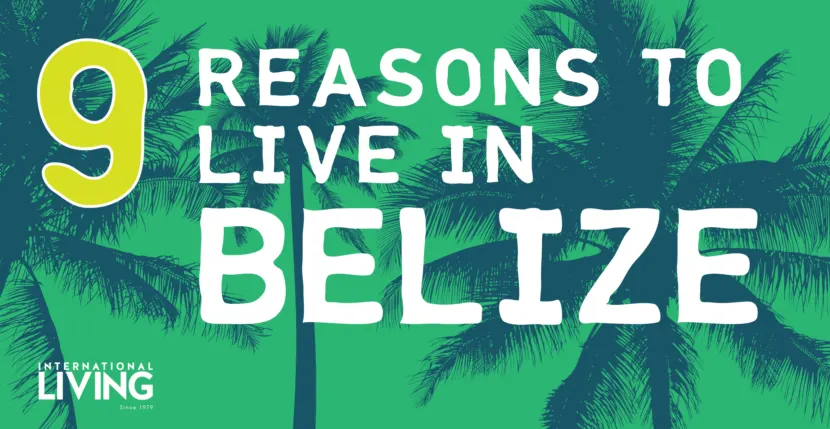
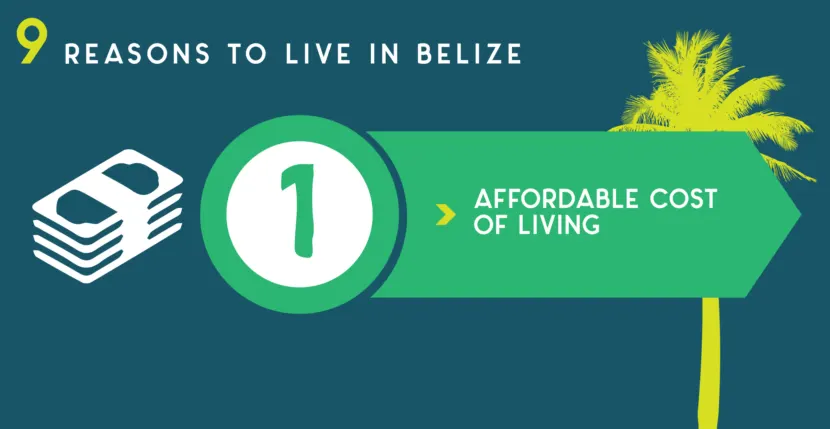
The cost of living in Belize is two thirds of what you would spend in Bermuda or the Bahamas, the highly popular resort areas of the Caribbean. A U.S. couple can live well for $2,000 a month, including rent, in Corozal, the Cayo, and Toledo Districts.
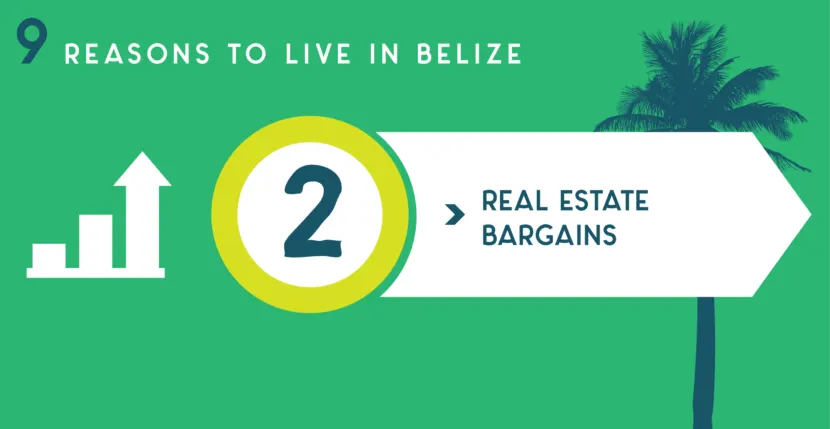
For a Caribbean destination, real estate prices are still reasonable. You can buy a three-bedroom home with a half-acre yard, on the bay of Corozal, for $250,000.
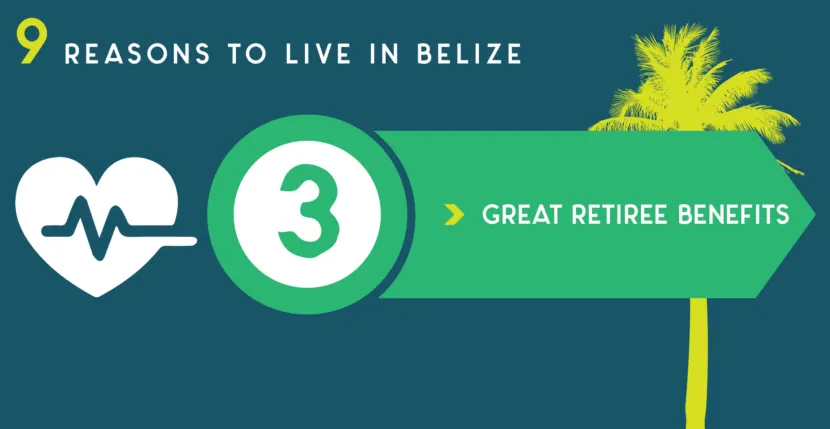
Belize offers retirees many benefits through the Qualified Retirement Persons Program (QRP). Among the benefits are the ability to bring personal goods to Belize tax-free—including a vehicle, boat, and plane—and paying no tax on any foreign-earned income. It also only requires you to spend one month of the year in Belize.
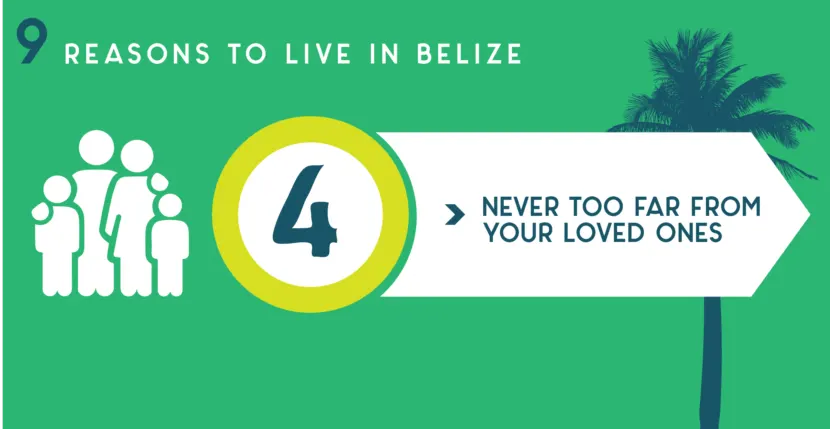
It takes only two hours to fly to Belize from the U.S., with regular flights from Houston, Dallas, Atlanta, and Miami.
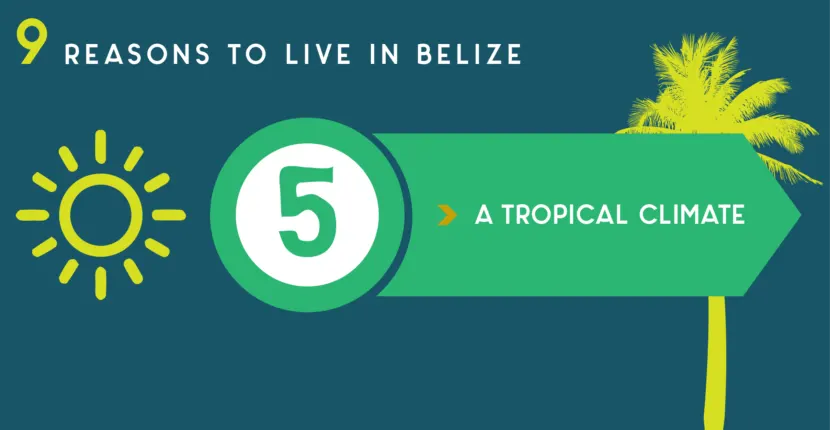
Because of Belize’s tropical climate, the temperature rarely drops below 70 F, so there’s never a need to worry about heating costs or shoveling snow.
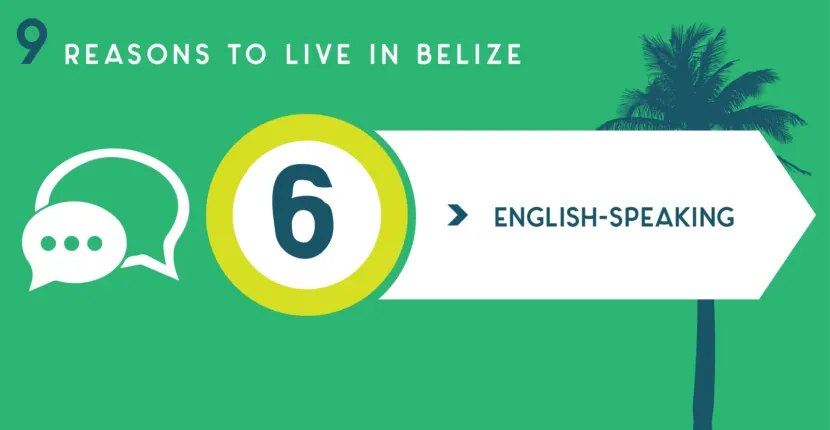
There’s no need to learn a new language either: Belize is the only official English-speaking country in Central America.
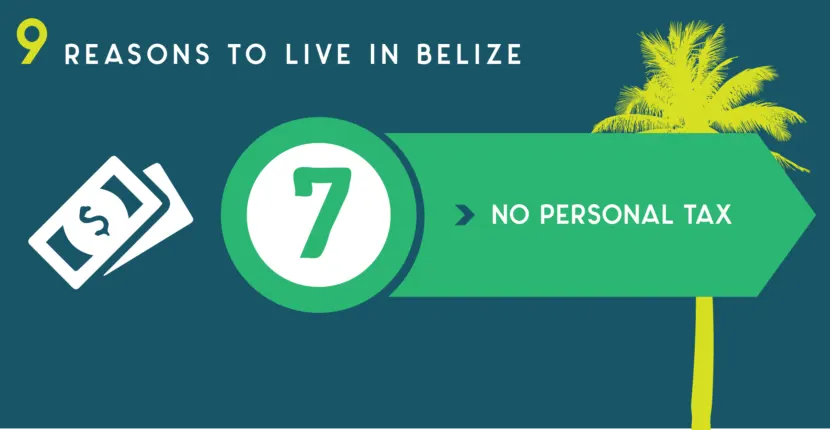
Personal taxes are practically non-existent in Belize. As well not paying income tax on foreign-derived income, there is also no capital gains tax, and no inheritance tax.
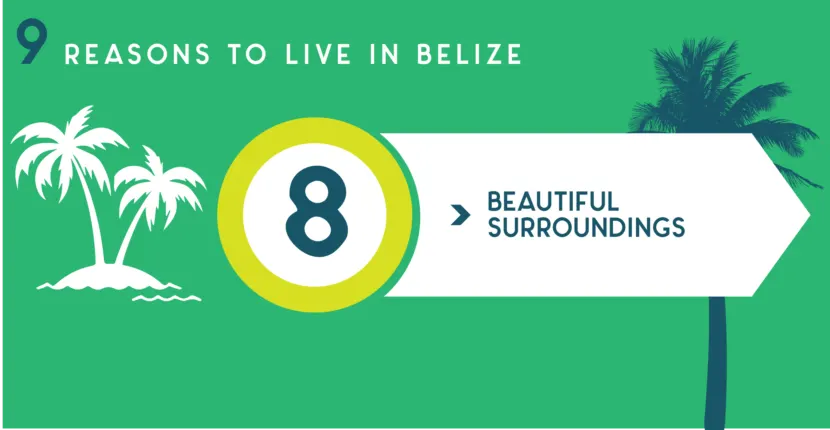
Belize is one of the world’s most beautiful, ecologically diverse countries. From the world’s second largest barrier reef, over 200 offshore cayes, and the famous Blue Hole, to exotic jungles, rivers, and magnificent Maya ruins, Belize offers expats a multitude of ways to enjoy its spectacular outdoor environment.
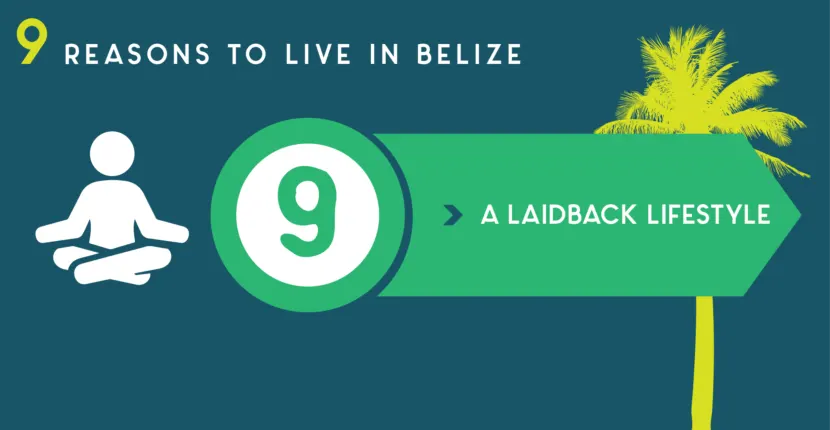
Belize is famous for its relaxed, Caribbean atmosphere and its laidback, “no shirt, no shoes, no problem” lifestyle.
